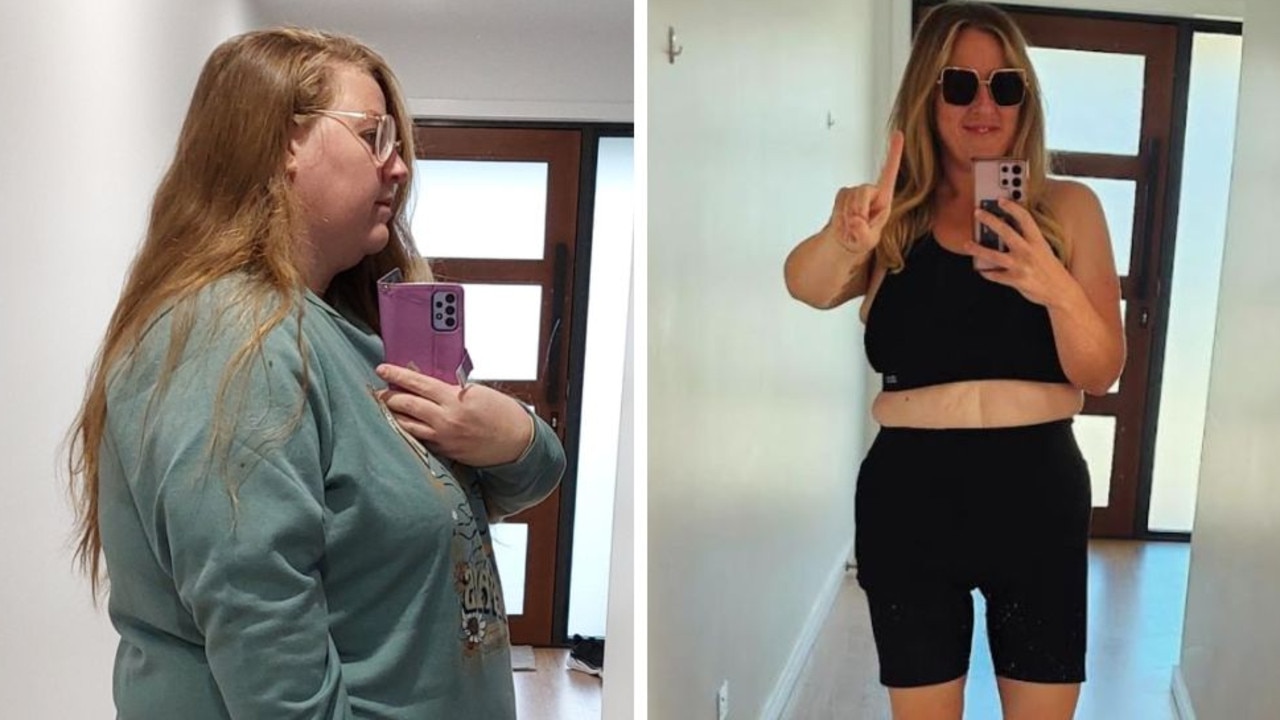Steph Claire Smith rips toxic Oatzempic Challenge to shreds
A “quick fix” weight loss fad is being praised all over social media – but experts are warning those wanting to lose weight to stay far away from it.

A “quick fix” weight loss fad is being praised all over social media – but experts are warning those wanting to lose weight to stay far away from it.
Oatzempic is a homemade meal replacement shake made up of half a cup of oats, water, lemon and lime juice — and is claiming to help people lose as much as 18 kilograms in two months.
It’s been touted as an alternative to Ozempic, a diabetes drug prescribed off-label that is constantly is short supply that has not been approved as a weight loss drug in Australia by the Therapeutic Goods Administration.
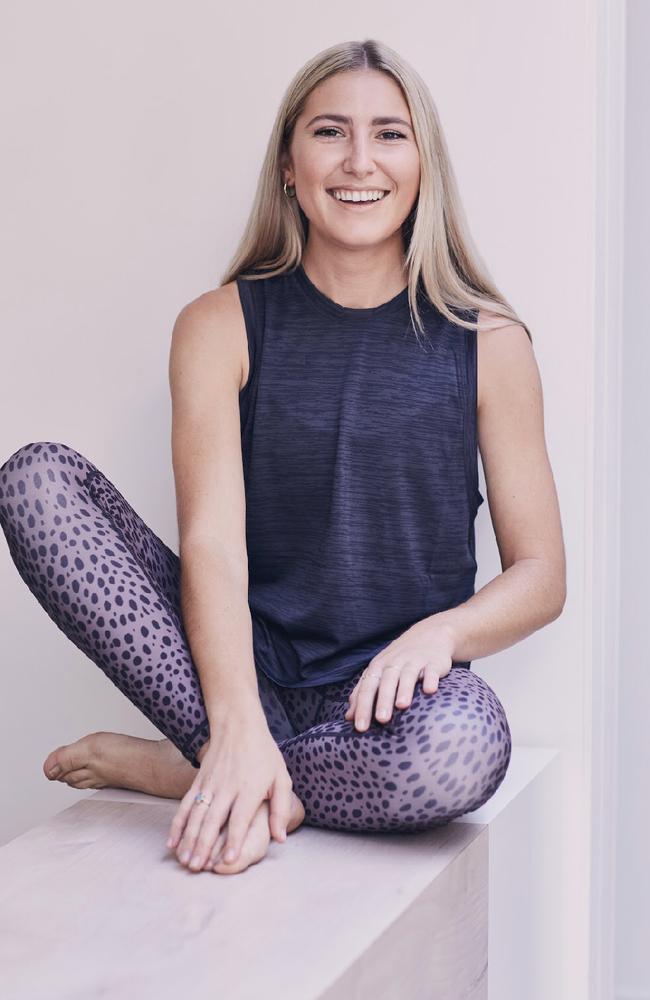
But Liv Morrison, the dietitian for Kic, said while the ingredients themselves had health benefits such as hydration, fibre and vitamin C, she did have concerns.
One of her main concerns was that food is meant to be enjoyable and labelling our foods as “drugs” is dangerous, according to Liv.
“It’s also really important for us to recognise the public opinion of Ozempic is quite negative in social media,” Liv told news.com.au.

“So when we’re looking at Oatzempic in itself, we automatically think ‘fast, rapid weight loss results’ and kind of an easy way out and then we are Oatzempic being promoted by influencers or everyday people, who aren’t health professionals, with no research or backing evidence behind it.
“It’s really easy for people to take it a step too far.”
For instance, some people may have the thought pattern of “why don’t I use it for two meals” and it quickly becomes a slippery slope.
“That’s not a healthy approach, but that is where my concern comes in,” Liv said
“Whenever you see the word challenge, when it’s in relation to anything that’s food related or your body and weight change, I find it a bit of a red flag. My ears prick up because that is basically saying there’s a start and there’s a finish time and when we’re looking at healthy, sustainable, progressional change, there isn’t that.
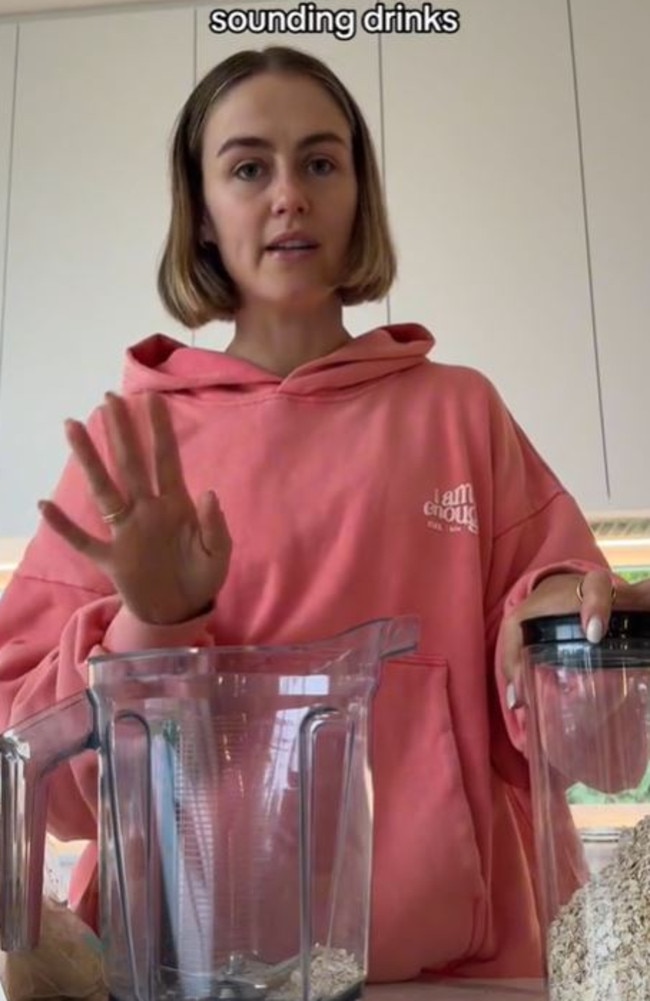
“Ideally, when it comes to creating a healthy lifestyle, it is a slow day-to-day improvement and you’re seeing no restriction on any kind of food group. There isn’t an end goal. This goes for food and exercise, it is something that you can do forever – it’s a way of life, rather than a diet or challenge.”
On social media platforms, people are promoting Oatzempic to replace a meal such as breakfast but Liv said it doesn’t actually constitute that.
“It has not got a balance of nutrients, micro and macro. There’s limited or minimal protein, dietary fats, as well as it’s missing most of the essential nutrients that we need per day for functioning,” she said.
Steph Claire Smith, who is the co-founder of Kic alongside Laura Henshaw, has also slammed the Oatzempic Challenge. Steph has been incredibly open about her past with restrictive eating and body image, particularly while she was modelling.
“Every time I see another quick-fix, fad diet flooding my feed it makes me so furious,” she said.
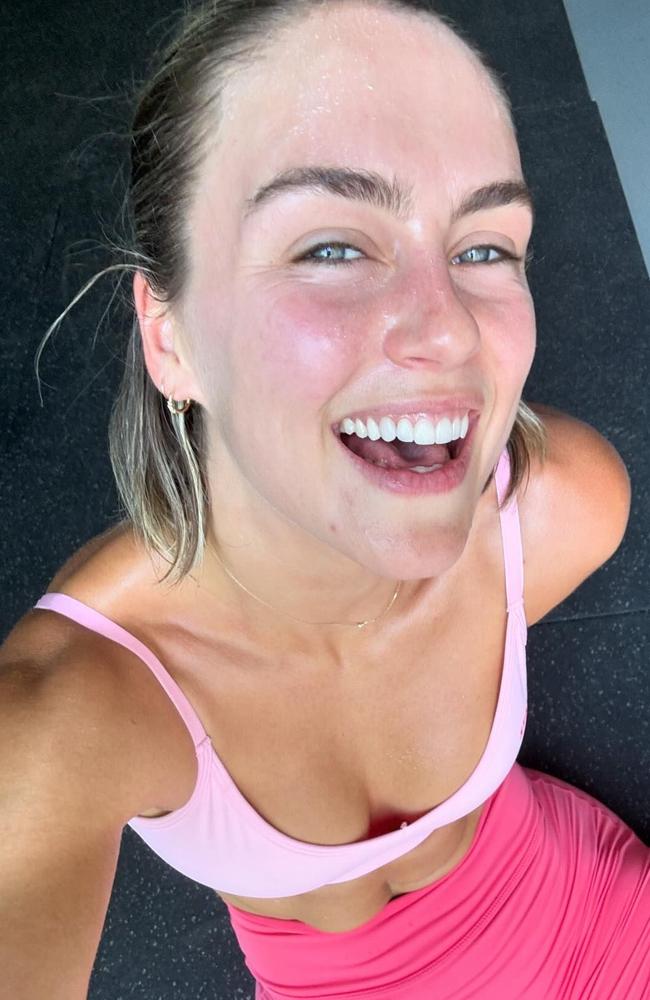
“Oatzempic is not an innovative weight loss recipe, it’s just restrictive dieting in fancy dress.”
She said losing that amount of weight in a short amount of time simply wasn’t good for you because you’re depriving yourself from nutrients and the pure joy of eating delicious food.
“I have been there. In my early 20s I was in a place with my restrictive eating where I’d fall for any toxic diet culture messaging. That’s why I’m so passionate about speaking up and voicing the dark side of these fad diets,” she said.
“I questioned whether to address this trend on TikTok, because honestly, I didn’t want to give it the light of day, but I saw so many videos promoting the false ‘benefits’ of this diet and I had to speak up.
“Being healthy and enjoying your food can co-exist. At Kic, we’re all about helping people build a sustainable healthy lifestyle. Oatzempic is not sustainable and it’s not healthy. It’s a hard no from me.”
Liv echoed Steph’s concerns about the danger of social media, body image and the potential it can have to cause eating disorders. She said it was directly targeting teenagers and women in their 20s — the most vulnerable group when it comes to disordered eating. She said Oatzempic, similar to the celery juice cleanse and chia seed drink, used items readily available in the house. She urged parents to be active on social media and follow the trends as it could be a “huge blind spot” for them.
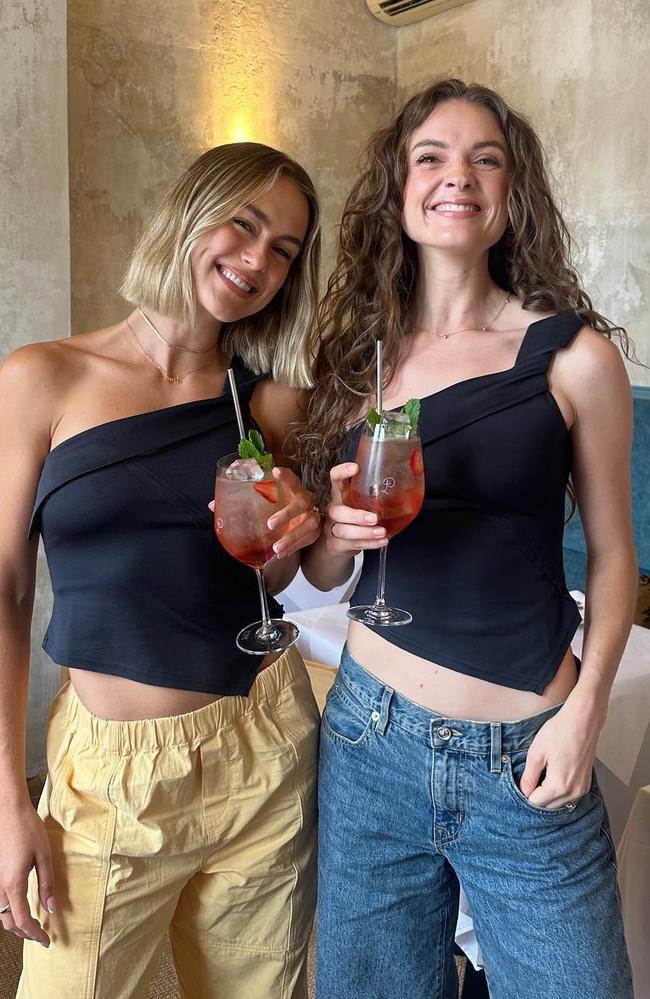
Recent research from MyFitnessPal partnered with Dublin City University to look at social media and the impact on fitness trends.
It shockingly showed that eight in 10 Millennials and Gen Z Australians are falling victim to inaccurate social media health trends on TikTok.
As many as 90 per cent of young Australians were taking health advice from people online, with people falling into trends such as the Carnivore Diet and Liquid Cleanse. Australia was deemed the most trusting in comparison to countries such as the UK, USA and Canada.
“The findings show Millennials and Gen Z’s are experimenting with diet fads. This is extremely concerning as they often aren’t dependably backed by science and could have potential health risks associated with them. There’s a clear urgency for more Australians to better understand what’s in the food they are eating, dig into the science behind it, and find trusted sources to guide them,” Sally O’Neill, clinical nutritionist, said about the data.
“At the end of the day, we really want people to see the red flags when it comes to online trends,” Liv said.
“Who is it being promoted by? Is that a trusted source or is it just Joe Blow? Does this actually have a stop or start time? Are there any red flags around challenges and the wording that they’re using? Is the thing that you’re consuming actually enjoyable? Can you see yourself implementing that change long-term? And is it actually impacting your relationship with yourself or food or are you cutting out multiple food groups?
“They’re the big things that I would really be questioning each day because at the end of the day, although looking at each of the ingredients, there’s nothing wrong with them at an individual level. But when you’re looking at a holistic big picture, when you take a step back, there are some things that play which can be quite damaging to many people.”






